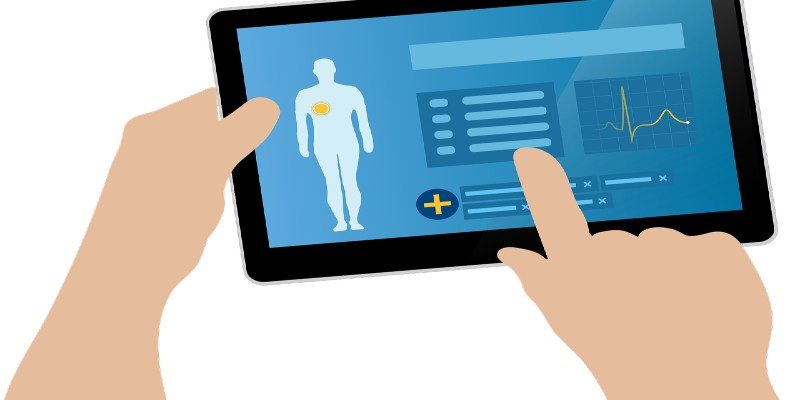The Indian Institute of Technology (IIT), Kanpur and the Gangwal School of Medical Science and Technology hosted a one-day national workshop on Telemedicine and Artificial Intelligence on July 2, 2022, at the IIT Kanpur Outreach Centre in NOIDA. The event was held in a hybrid mode, and hosted a number of digital health policymakers from the government, telemedicine practitioners from both public and corporate hospitals, and academics from technological institutions across the country and overseas.
The workshop was inaugurated by Dr. R S Sharma, CEO, National Health Authority, Government of India, who enlightened the participants on the activities undertaken at the national level to facilitate rapid adoption on digital technologies for health in the care delivery pathway ensuring universal access to health care services. Earlier in the session, Prof. Ashutosh Sharma, former Secretary DST and currently Professor at IIT Kanpur welcomed the Chief Guest, dignitaries, invited speakers and participants.
Prof. Abhay Karandikar, Director, IIT Kanpur addressed the dignitaries and other invitees. In his address, Prof. Karandikar spoke about the vision of IIT Kanpur in setting up the Gangwal School of Medical Science and Technology and various Centres of Excellence in the campus. He stressed the relevance of medical technology in advancing modern healthcare in particular and the need for self-reliance in making quality healthcare services affordable and accessible to billions of population from not only India but from all low and middle income countries around the world.
The scientific sessions were divided into three sections, the first section covered detailed deliberation on policy and procedures on digital health by Mr. Vikram Pagaria from National Health Authority. The second section covered telemedicine technology and its applications in various domains like Radiology, Pathology, Surgery, and Ophthalmology as practiced in public and corporate hospitals. Details about the National Telemedicine System using e-Sanjeevani was presented by C-DAC, Mohali in great detail. The future plan of development of Version 2.0 of e-Sanjeevani was announced which will have options of integration of third party medical devices, in particular, point-of-care diagnostics based on IoT technology. The third section focused on application of artificial intelligence addressing its usage in remote patient monitoring in ICU setting, mental health, rural telehealth care system etc.
The concluding Round Table had a brain storming session involving invited experts in addition to the session experts, to develop strategy and vision of developing action plan in the upcoming centres of excellence in telemedicine and AI.
The workshop highlighted the necessity of telemedicine and AI in the health system in the country. Discussions also catered to how the government policies over the past couple of years led by the National Health Authority have paved the path for changing Indian healthcare through the advancement of AI and Telemedicine in healthcare. Some of the key issues discussed at the workshop are as follows:
- The necessity of the work plan to transform the digital structure in the rural areas is devoted to developing telemedicine to provide quality healthcare services locally and at lower costs.
- Artificial intelligence plays a significant role in diagnostics and digital healthcare solutions. AI-based systems in performing medical work in specializations including radiology and pathology are becoming increasingly prevalent and desirable in preventative medicine in the Healthcare domain. An analysis on the health-related data collected and measured by digital devices was given.
- Digital pathology plays a vital role in deep learning for identifying the target of interest. The nature of diagnostics has rapidly changed owing to an explosion in the availability of patient data for disease diagnosis. Also, the challenges in digital pathology image analysis were highlighted.
- Digital technologies in current surgical practices and key concepts and techniques within AI that are driving innovation across industries were discussed. AI has the potential to revolutionize the way surgery is taught and practiced with the future optimized for the highest quality patient care.
- Reimagining the healthcare industry by embracing telemedicine and AI is essential. The guidelines of telemedicine and how to overcome the challenges like ethical concerns and lack of infrastructure in rural regions were discussed.
There were a number of eminent speakers and experts who took part in the workshop. They are as follows: Vikram Pagaria, National Health Agency, Govt. of India; Prof. K Ganapathy, Apollo Telehealth Network Foundation, Chennai; Mr. Praveen Srivastava, Associate Director & Head, Health Informatics Dept., C-DAC, NOIDA; Dr. Suchita Markan, Scientist E, Medical Device and Diagnostics Mission Secretariat, Indian Council of Medical Researchl; Rajesh Kaushish, Asst. Director, Dept. of Health Informatics & Medical Electronics, Center for Development of Advanced Computing, (C-DAC), Mohali; Dr. Arjun Kalyanpur, Chairman, Tele-radiology solutions, Bangalore; Dr. R Kim, Director, Arvind Eye Hospital System, Madurai; Dr. Sangeeta B. Desai, Head, Dept. of Pathology, TMH, Mumbai; Prof. S K Mishra, Distinguished Visiting Professor, Gangwal School of Medical Science & Technology, IIT Kanpur; Dr. Vijayakumar Chinnadurai, Scientist F. Cognitive control and machine learning center, INMAS Delhi; Prof. T K Srikanth, eHealth Research Center, IIIT, Bangalore Tele-mental Health Mission Task Force, MoH&FW, Govt. of India; Dr. Raghu Dharmaraju, President, ARTPARK (AI & Robotics Technology Park) IISc, Bengaluru; Dr. Dileep Raman, Co-founder, Cloud Physician, Bengaluru; Dr. Prasanna Desikan, University of Minnesota, USA; Mr. Vimal, Wakhlu, Former CMD, TCIL, DoT, Govt. of India & Vice President, ITU-APT Foundation; Prof. Sunil Shroff, Sr. Consultant Urology and Renal Transplant Surgeon, Madras Medical Mission, Chennai; Prof. P K Pradhan, Dept. of Nuclear Medicine, Nodal Officer, SGPGI, Lucknow Telemedicine Programme & President, Telemedicine Society of India; and Prof. Anjali Mishra, Professor, Dept. of Endocrine Surgery, Member, SGPGI.
The workshop concluded with special emphasis on the guidelines for the futuristic activities at the Centres of Excellence on Telemedicine and Artificial Intelligence.









